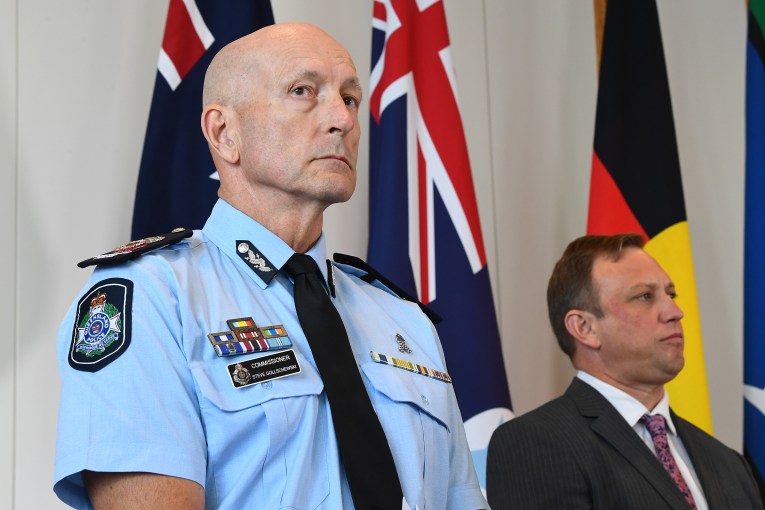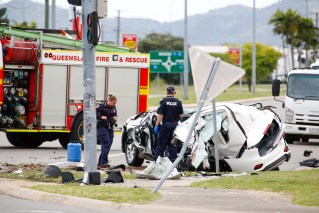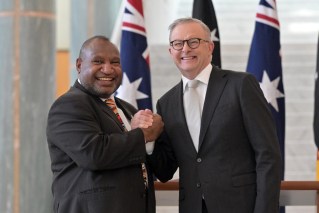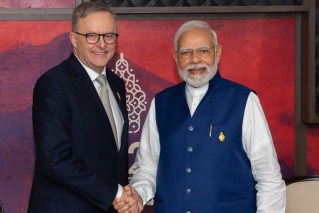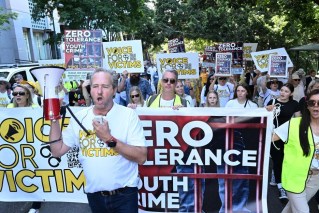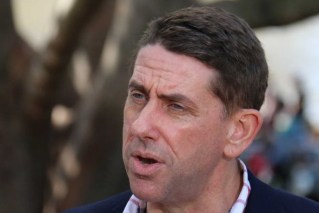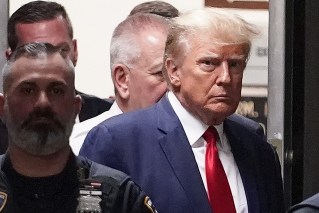Vaccine records are online, in wallets and apps – just don’t call it a passport
From 1am Saturday, Queensland will require proof of vaccination from essential workers waiting to cross the border from NSW. It will likely to become a more common requirement, but is already proving controversial.
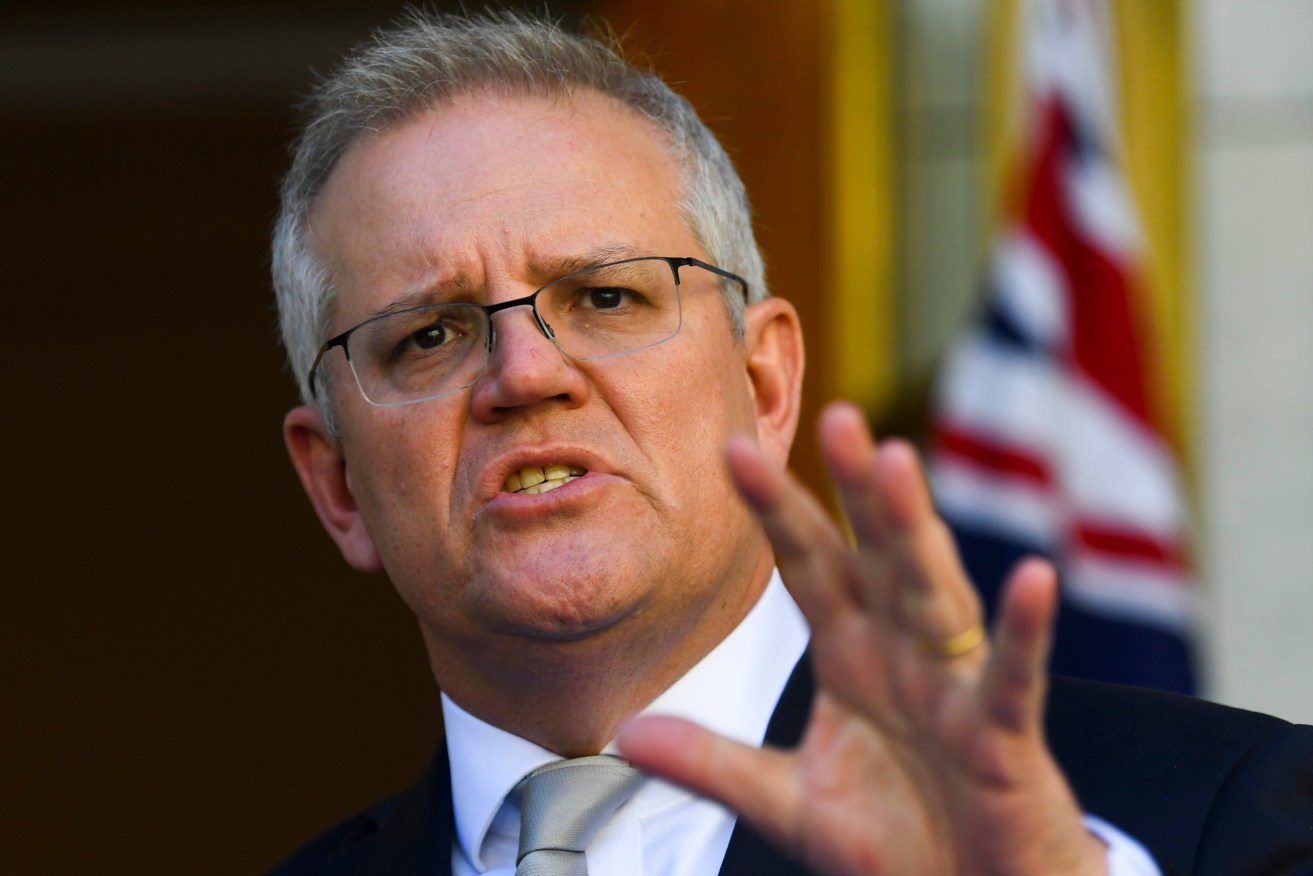
Prime Minister Scott Morrison has accused Russia as behaving like 'thugs and bullies'. (AAP Image/Lukas Coch)
Essential workers, who are also being compelled to prove their jobs are vital in the current environment, will be required to show they have had at least one dose of a COVID-19 vaccine to enter Queensland from NSW.
Chief Health Officer Jeannette Young described the new regime as “tight” but said the spread of the Delta variant out of Greater Sydney had increased the risk of rapid, unchecked transmission of the virus into Queensland.
Tasked with enforcing the new measure, Deputy Police Commissioner Steve Gollschewski today said officers at border checkpoints would be “quite strict” and leave no doubts about vaccination status.
“Anyone that comes to our border who does not have the appropriate pass, and cannot be verified as requested by the police, will not get through,” Gollschewski said.
Queensland is expected to rely largely on people using the Medicare Express app which, when linked to a MyGov account, provides evidence in the form of vaccination certificates from the Australian Immunisation Register.
Such technology has been compared to vaccine passports already being used overseas, and which Prime Minister Scott Morrison earlier this year suggested would be required within Australia as widespread vaccinations allow the easing of restrictions.
However, Morrison and his colleagues now appear loathe to associate themselves with vaccine passports, lest they be accused of forcing vaccination upon Australians. Such passports might bring freedom of travel, but to some they signify the loss of freedom of choice.
Businessman and political player Clive Palmer has already threatened a High Court challenge over Western Australia moving to impose “unconstitutional” requirements for vaccine passports, the latest of several stoushes with the state where he has a mining interest.
While Morrison and his colleagues maintain the States are responsible for deciding any such travel requirements, the Commonwealth is playing a key role behind the scenes.

Services Australia has used this mockup of how people might declare their vaccination status in future. (Supplied)
Apart from the Medicare Express app, which has been years in the making, the My Health Record is now being given a new app that will show immunisation status. Some third party apps already provide a similar service.
The Department of Foreign Affairs and Trade is considering how Australia might fit into international travel, post-pandemic, and whether Australians might be equipped with a QR code to signal their vaccination status.
Services Australia is also playing a greater role in digital innovation within government, and helped make proof of COVID-19 vaccinations available in Apple Wallet and Google Pay, in line with a previous commitment to empower citizens.
While InQueensland has been told Services Australia is developing yet another app, a spokesman for Workforce, Skills, Small and Family Business Stuart Robert would not comment, except to again distance the government from ‘vaccine passports’.
“Since mandating the recording of COVID vaccinations on the Australian Immunisation Register, the Federal Government has iteratively updated proof of vaccination certificates including bolstering security measures and the government will continue to iteratively update the proof of vaccination certificates,” the spokesman in a statement.
“There are no plans from the Federal Government to introduce or develop ‘vaccination passports’ for domestic COVID-19 vaccination status verification.”
In May, Morrison acknowledged vaccine passports were “the next step” in the pandemic response, and said he was keen to engage with the states on this issue and help empower citizens. By this week, however, the Prime Minister was quick to reject any suggestion of Commonwealth involvement.
“The government doesn’t have a policy of vaccine passports,” Morrison said.
“We don’t have one. There isn’t a policy of vaccine passports. And so to suggest there is would be false.”
The Commonwealth has previously made childhood vaccinations compulsory for various payments and services.
Queensland’s move to require proof of vaccination comes amid a debate over whether, or when, employers can make vaccinations mandatory. With Federal and State governments also keen to leave it to business, where companies have mixed views, building unions have warned of industrial action if the decision to vaccinate is taken out of workers’ hands.
This week, Qantas announced staff would be required to be vaccinated, unless there were medical reasons for them not to do so. The airline is also helping to develop online tools to make it easier for passengers to declare their vaccination status on future international flights.
In the public sector, aged care workers are required to be vaccinated, and some hospital workers already face similar requirements. NSW Premier Gladys Berejiklian today announced childcare and disability services workers would also have to be vaccinated.
Australia’s Privacy Commissioner has already sought to provide guidance around such issues, while Queensland’s Human Rights Commissioner, Scott McDougall, said it would help if the Palaszczuk Government provided evidence to support its decisions.
Young leads the pandemic response in Queensland, under emergency declarations that give her the power to act, direct and advise in the interests of public health.
“We understand the need to keep the community safe and acknowledge the work of the Chief Health Officer and broader government to date in doing this,” McDougall told InQueensland.
“However, requiring people to be vaccinated is a significant limitation on rights. While it may be lawful for the Chief Health Officer to exercise that power, ideally it should be expressly provided for in legislation, which is currently not the case.”
McDougall said further human rights analysis from the Chief Health Officer would also assist businesses considering vaccination requirements.
“At present, the community is left to decipher how competing interests and rights are considered in directions already made that mandate vaccination, and many businesses, service providers, customers, employees, and others are wondering when requiring vaccination is reasonable or not. This is particularly so when it concerns people who are unable to be vaccinated for medical reasons.”
McDougall also raised the shortage of vaccines as a complicating factor, saying “at a bare minimum, mandating vaccination should only be considered for those who actually have had a reasonable opportunity to be vaccinated”.
Queensland Health this week moved to ramp up vaccination clinics along the border, particularly on the Gold Coast, where a clinic dealt with almost 800 walk-ins on Thursday. In the next parliamentary sittings, the Palaszczuk Government will move to overhaul the Chief Health Officer’s powers and refine the legislative response to the pandemic.
It is not clear whether the legislative changes will clarify the vaccination situation. Young this week stopped short of saying vaccination should be mandatory, instead saying “I believe that if people want to have freedoms to be able to go about their lives, they need to be vaccinated”.
